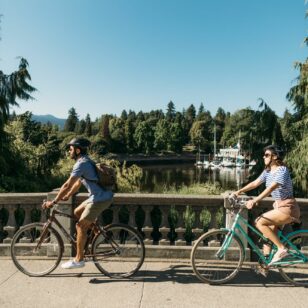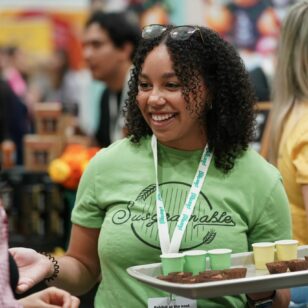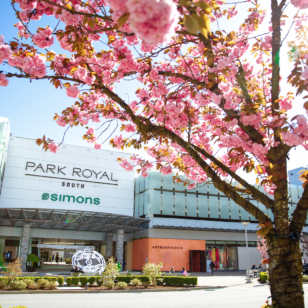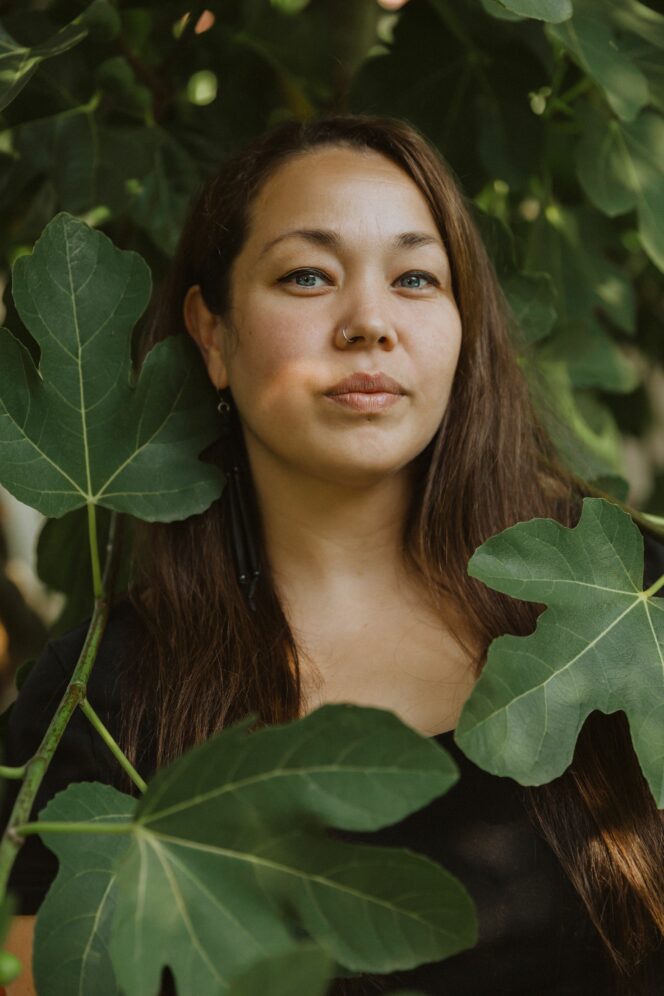
Lynn-Marie Angus of Sisters Sage; Photo credit: Iulia Agnew
Sisters Sage is the inspiring story of two sisters, Lynn-Marie and Melissa-Rae Angus, who empowered themselves by launching their own company devoted to wellness products in 2018. The two took a thoughtful look at their lives and came to a decision. “We knew we had to do better for ourselves. We knew it had to be Indigenous. We knew we wanted to be our own bosses. We wanted to promote our health and wellbeing in many different facets of our life, financially for one, culturally, spiritually, socially – all aspects we weren’t getting at that time of our lives,” says Lynn-Marie Angus.
The two sisters, who are from the Gitxaala, Nisga’a, and Métis nations, were both working at jobs they found emotionally and physically taxing. Lynn-Marie was employed in high-rise construction while Melissa-Rae was working in a kitchen at a women’s shelter. When Melissa-Rae became pregnant with her first child and was experiencing financial precarity, the two realized that they needed to leverage their creativity into a business.
They found a seed of an idea from bath bombs that Melissa-Rae had been making as a hobby for family and friends. At the Vancouver Aboriginal Friendship Centre Society, they came across a flyer for a community entrepreneurship program through UBC’s Learning Exchange. The program equipped Lynn-Marie with basic skills needed to run a business, as well as helped her refine the concept for Sisters Sage. At the end of the program, she pitched her business idea and was awarded $200. “We went and spent that $200, plus a bunch more, to make soaps, bath bombs, and sprays,” she says. From there, their businesses kept on evolving and expanding.
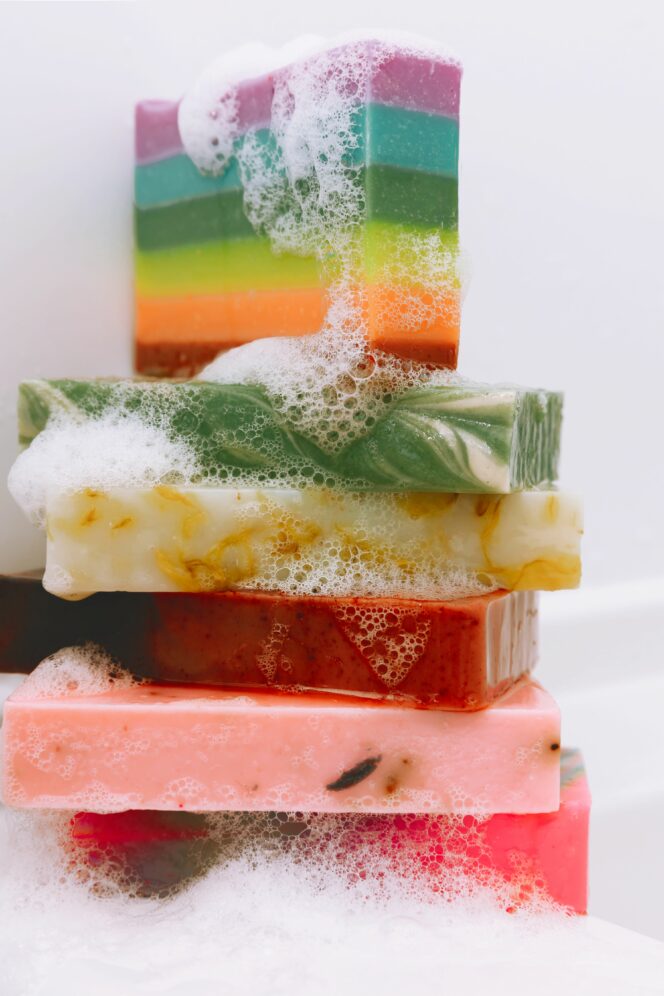
Photo Credit: Iulia Agnew
Sisters Sage has made a name for their artisanal self-care and wellness products. “As for the ingredients, we use a lot of Indigenous ingredients, or medicines as we call them. Those are just commonplace in our lives. That’s what we grew up knowing: cedar, sage, sweetgrass, and tobacco leaf. Incorporating that into our business just made sense,” says Lynn-Marie.
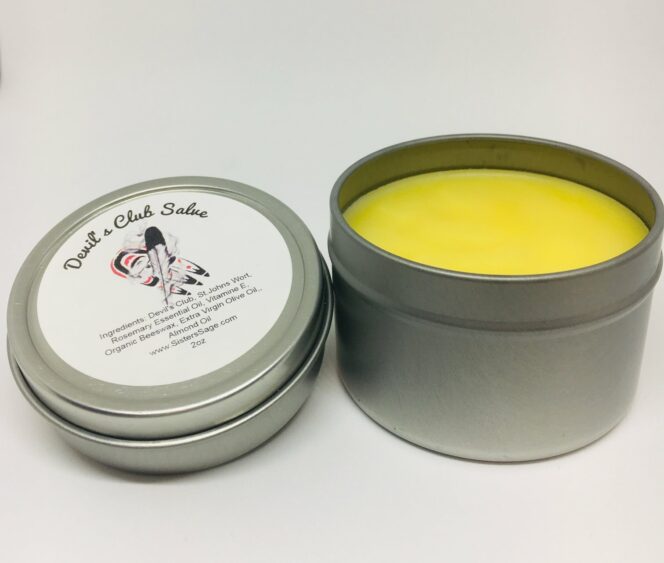
For example, Sisters Sage uses devil’s club, a large shrub that is found wild in the Pacific Northwest and that the sisters grew up with as a medicinal ingredient. “My aunts and my uncles taught my sister and me how to ethically, as per our cultural protocols, harvest plants, especially the devil’s club, and how to process them,” says Lynn-Marie. The sisters incorporate the inner bark of devil’s club in a salve they recommend for eczema, arthritis, and deep tissue inflammation.
Lynn-Marie discusses the very distinct nature of their company’s wellness philosophy. “As an Indigenous woman, I’m not any kind of authority on Indigeneity because there are so many different nations across Canada, across Turtle Island, and they all have their own philosophies and spiritualities. Our idea of wellness is something that’s been handed down from our mom and our aunties. I feel like our culture and our wellness are like a river that is always moving and ever changing,” she says.
Sister Sage describes their approach to their products as “modern tradish.” For example, they sell a smokeless cedar smudge spray for those who, for a variety of reasons, are unable to smudge in the traditional way. “This is a part of our wellness that we’re adapting to society now,” says Lynn-Marie.
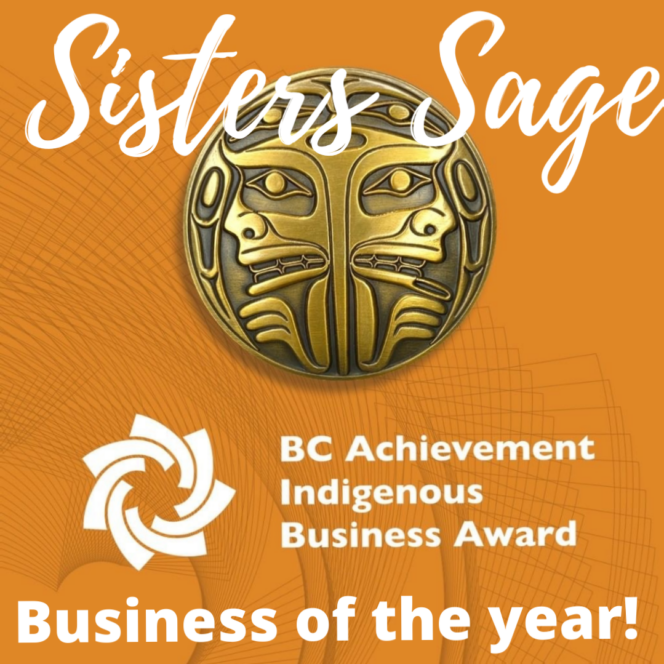
They use their monthly full moon soaps as a way of educating their customers about seasonality in Indigenous culture. In addition, they see their company as motivational, especially for other aspiring Indigenous female entrepreneurs who face a variety of deeply rooted systemic barriers to their success. “Now one of our main missions is to motivate, empower, and support other Indigenous women entrepreneurs to also define their own financial futures through Indigenous business,” she says.
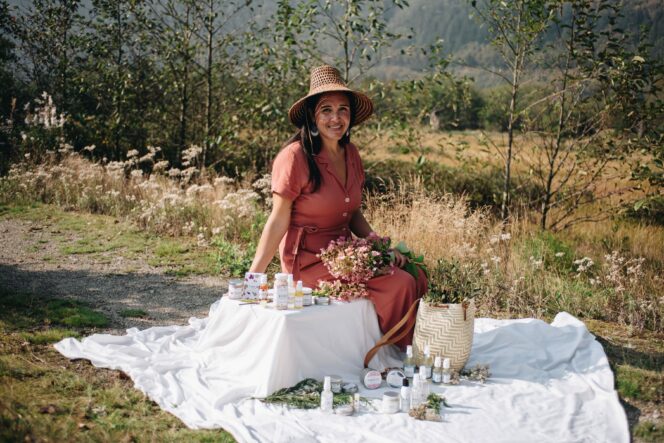
Leigh Joseph; Photo: Kaili’i Smith @liiphoto_
Another incredible Indigenous female entrepreneur heads Sḵwálwen Botanicals, a luxury skincare brand that champions local botanicals in its product line. Its founder, Leigh Joseph (Styawat is her ancestral name) of Squamish First Nations, is trained as an ethnobotanist and launched her business in 2018 after initially making products for her children. “As I learned more about the academic study of ethnobotany I realized that I wanted to apply that knowledge to rebuilding relationships within my family and community. This work also led to my desire to explore creative ways to integrate plants into daily life, and that is how Sḵwálwen was born,” Joseph says.
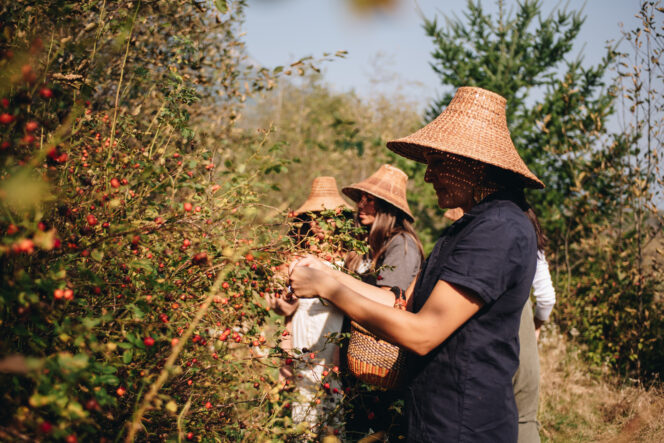
Leigh Joseph harvesting with her team; Photo credit: Kaili’i Smith @liiphoto_
Joseph is deeply interested in the relationship between plants, people, and cultural knowledge, especially as it relates to traditional plant medicine. She uses ingredients like sage, sweetgrass, Usnea lichen, and wild poplar leaf buds to nurture and replenish the skin, drawing upon their cultural and ceremonial significance.
Sḵwálwen Botanicals has a wild rose (kalkáy) line that features a variety of products: a facial oil, toner, masque, salve, and bath salts. Joseph promotes the use of this botanical for its ability to calm the skin, decrease redness, as well as uplift due to its pleasing aroma. The Kalkáy facial oil, with rosehips and organic sweet almond and jojoba oils, is one of their best sellers since it combats irritation and leaves the skin very soft.
With all foraged ingredients, Joseph adopts ethical and sustainable harvesting practices. “Wild rose reminds us to maintain a sustainable relationship with our natural environment. I have been taught to always leave two petals on each rose flower I harvest from. This ensures that pollinators still have somewhere to land, and the flower can be pollinated and develop into a rosehip,” she says. She adds that animals and birds eat rosehips, so leaving petals ensures that wildlife will still have a nutritional source after her harvesting.
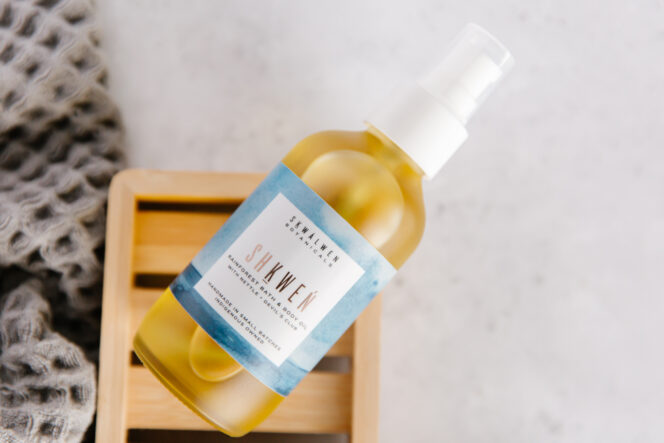
Photo credit: Iulia Agnew @iulia.agnew
Like Sisters Sage, Sḵwálwen Botanicals uses devil’s club in its products. Leigh recommends the Shkweń Rainforest Bath and Body Oil, which contains devil’s club and nettle, both sustainably hand-harvested in Squamish. “Devil’s club is one of the most culturally and spiritually important plants to the Squamish People. The oil smells fresh and woodsy and leaves the skin soft and supple,” she says.
Besides producing lovely restorative skincare products, Sḵwálwen Botanicals’ larger project is to create a platform for increasing Indigenous representation and amplifying Indigenous voices in what are usually mainstream spaces. Joseph witnessed the devastating effects of residential school on her paternal grandparents and other elders in her community. Her connection to plants allows her to challenge a colonial treatment of the land with traditional Squamish knowledge – as well as to teach her customers about a different way of seeing and treating nature.

Photo credit: Mirae Campbell @miraecampbell
“Through Sḵwálwen I am setting out to share stories, images, skincare and wellness products that share with the world the beauty of Indigenous place-based knowledge and the connections we can all share with regards to being in respectful and reciprocal relationships with the land and our natural surroundings,” Joseph says. This celebration of a holistic, culturally-grounded view of the land makes both Sḵwálwen Botanicals and Sisters Sage unique brands within the wellness industry.













